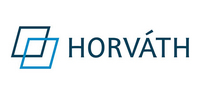Welcome to the Controlling Conference Switzerland on September 24, 2024 in Rotkreuz
Turning point in controlling: The transformation of the controlling organization
Successfully shaping the future of controlling? Transformation is the key word!
Transformation is the key word when it comes to successfully shaping the future of controlling. The introduction and acceptance of digital solutions (e.g. artificial intelligence), new organizational forms and role profiles offers opportunities, but also presents challenges. The multi-layered transformation process requires both leadership and a rethink and the establishment of a growth mindset in the controlling organization.
The aim of this year's Controlling Conference Switzerland is to highlight and discuss the technical, organizational and cultural success factors of a modern controlling organization. The focus is on the importance of AI in the controlling organization.
Our speakers provide insight into their finance and controlling functions and answer participants' questions in depth. The focus sessions, the breaks, the lunch and the aperitif riche also offer an excellent opportunity for personal exchange.
The Controlling Conference Switzerland is organized by the the Institute for Financial Services Zug IFZ in cooperation with the ICV Swiss work groups. Together we want to combine practical experience with current developments in controlling and make this knowledge available to the participants.
Conference language is German.
Speakers 2024
- Svenja Amrhein, pRED Finance Head, Roche
- Jörn Basel, Professor für Business Psychology, Majorverantwortlicher Markt- und Konsumentenpsychologie, Hochschule Luzern
- Marc Pouly, Professor for Machine Learning & Artificial Intelligence, Co-Head Algorithmic Business Research Lab, Hochschule Luzern
- Basilius Scheidegger, Chef Finanzverwaltung, Kanton Zürich
- Herbert Stauffer, Geschäftsführer BARC Schweiz GmbH und Senior Analyst Data & Analytics
- Franz Steiger, CFO SBB AG, Mitglied der Konzernleitung
- Moderation: Ulrich Egle, Hochschule Luzern
Agenda for the Controller Conference Switzerland 2024
... of the guests of the CTS 2024
Ulrich Egle
Institute for Financial Services Zug IFZ
Hochschule Luzern
- Artificial intelligence: how computers learned to see, read, write and draw
- Making concrete use of AI potential: use cases from Swiss SMEs
- Current trends, developments and outlook
Marc Pouly
Professor for Machine Learning & Artificial Intelligence
Co-Head Algorithmic Business Research Lab
Hochschule Luzern
Language: German
- State of AI in companies
- Hurdles and risks when using AI
- Opportunities and use cases
- What is the manufacturer market doing?
Herbert Stauffer
Managing Director BARC Schweiz GmbH
Senior Analyst Data & Analytics
Language: German
Time for networking
- Understanding usage behavior in the context of new technologies such as AI
- Ensuring trust as a resource in the course of acceptance
- Addressing affective misjudgments in technology introductions
Jörn Basel
Professor for Business Psychology
Major responsible for market and consumer psychology
Hochschule Luzern
Language: German
- How much automation is sensible/profitable in an SME?
- Practical examples of automation projects at Essemtec
- Pitfalls and lessons learned
Dario Himmelsbach
Head of Finance
Essemtec AG
Time for netwokring
- What strategic challenges does SBB face and which of them are relevant for the finance department?
- Has AI already arrived in practice at SBB?
- How relevant is digitalization for the functional finance strategy?
- What exactly do our steps into the AI future look like? What results and insights emerged after 3 months of the “AI@F Pioneer Program”?
Franz Steiger
CFO, Member of the Group Executive Board
SBB AG
Language: German
- Central systems for central processes
- Automation and user support for calculations and reports
- New role model: less collecting numbers, more content expertise
Basilius Scheidegger
Head of Financial Administration
Kanton Zürich
Language: German
Time for networking
- Practical example on how to have budget and strategy go hand in hand
- The benefits of benchmarks
- What to consider for implementation
Svenja Amrhein
pRED Finance Head
Roche
Imke Keimer
Institute for Financial Services Zug IFZ
Hochschule Luzern
and networking
Event details, conditions & registration
Venue
Hochschule Luzern - Wirtschaft
Institut für Finanzdienstleistungen Zug IFZ
Campus Zug-Rotkreuz, Suurstoffi 1
CH-6343 Rotkreuz
Tel. +41 41 757 67 67
e-mail-Adresse: ifz{bei}hslu.ch
Internet: www.hslu.ch/ifz
How to get here
The Institute for Financial Services Zug IFZ is located on the Zug-Rotkreuz campus near Rotkreuz train station in the canton of Zug.
It is easily accessible by public transport. The trains run on the Zurich–Lucerne axis. From Rotkreuz train station you can walk to the institute in less than five minutes.
You can find the train connections here.
Organizer
Internationaler Controller Verein eV
Münchner Strasse 8, D-82237 Wörthsee
Tel. +49 8153-88 974-20
Fax +49 8153-88 974-31
e-mail icv-schweiz{bei}icv-controlling.com
Hochschule Luzern – Wirtschaft
Institut für Finanzdienstleistungen Zug IFZ
Campus Zug-Rotkreuz, Suurstoffi 1, CH-6343 Rotkreuz
Tel. +41 41 757 67 67
e-mail ifz{bei}hslu.ch
Registration and conference costs
How much is the conference?
- CHF 590.- incl. refreshments during breaks, lunch, aperitif riche and documents
- CHF 490.- for members of the International Association of Controllers ICV - Become a member now and take advantage now!
Registration deadline: Registration is possible until September 17, 2024.
Registration
Sponsors
About the Controlling Conference Switzerland
Do not miss any more information and invitations to our work group meetings: Register here.
About the CTS Controllig Conference Swizterland
Portrait of the conference
The CTS has been organized by the Swiss work groups of the ICV (International Association of Controllers) since 1990, since 2017 with the Institute for Financial Services Zug IFZ. Together we want to combine practical experience with current research results and make this knowledge available to controllers and financially interested practitioners.
The conference addresses controllers, finance and controlling executives, CFOs, project managers and business analysts from all sectors who are involved in or affected by the topic. Participants can be inspired by current research results and specific practical experience.
For whom is the CTS the perfect event?
- CFOs
- Responsible for Controlling
- Controllers
- Business Analysts
- Project managers for financial and sustainability transformation


![[Translate to English:] Hier mit einem Klick ins Bild zur Anmeldung](/fileadmin/_processed_/7/b/csm_Online_registration_3b735acbc7.png)



